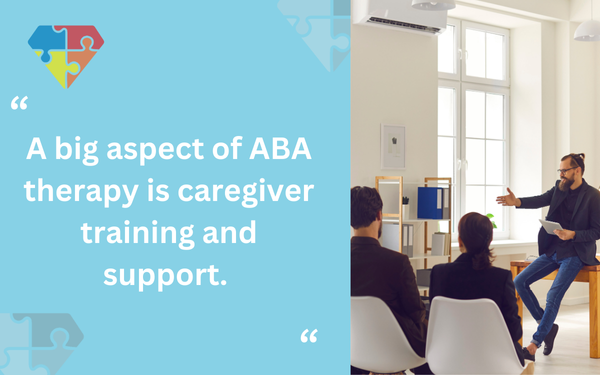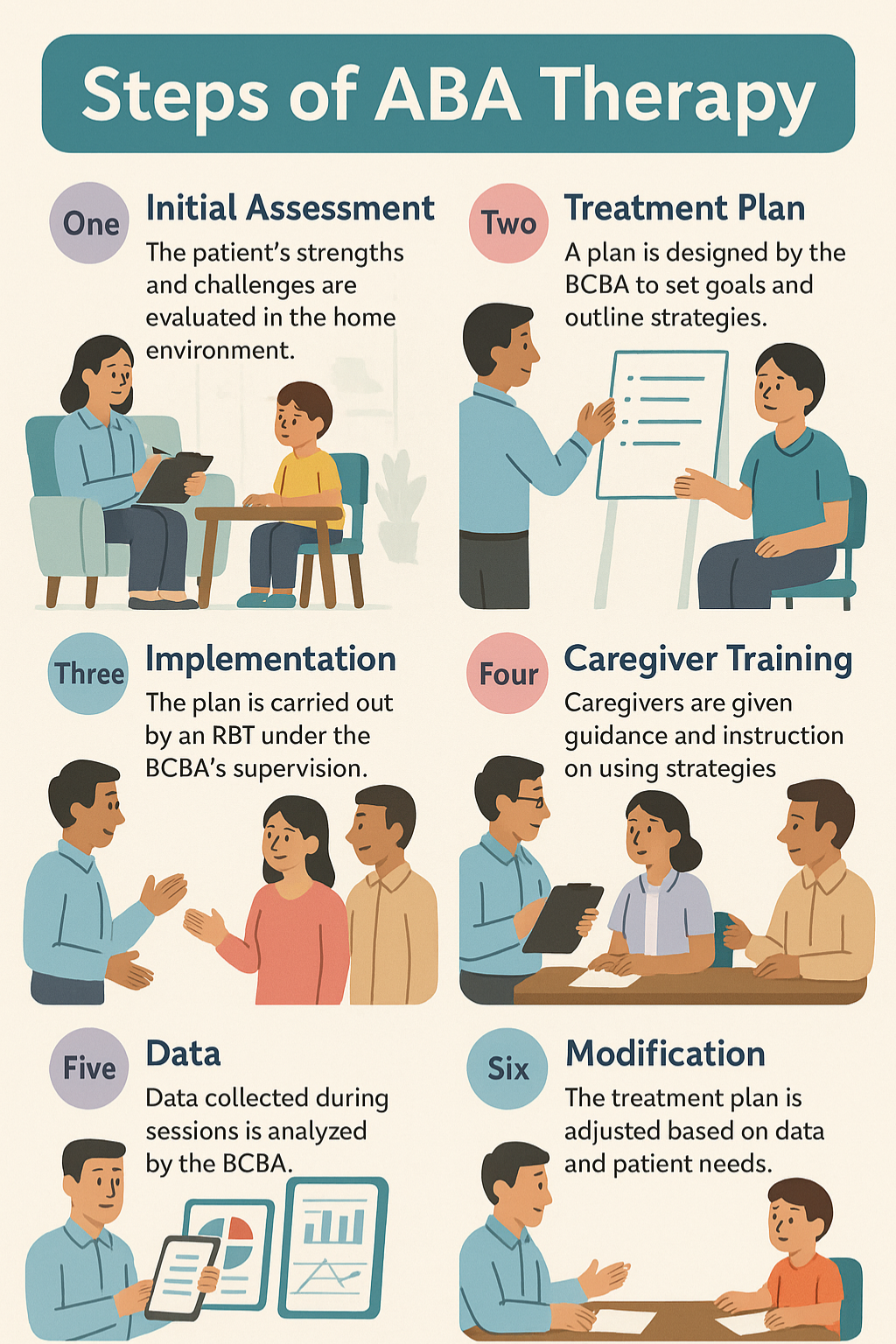What Role Does the BCBA Play in In-Home Therapy?
Board Certified Behavior Analysts (BCBAs) play a crucial role in helping to support children who have autism spectrum disorder (ASD). They take the lead in treatments such as applied behavior analysis (ABA therapy), conducting evaluations, creating treatment plans and providing overall supervision of the plan.
The role of the BCBA is very similar in both clinic-based and in-home therapy, though there are some nuances of each that are tailored to the specific environment. That being said, the responsibilities of a BCBA are generally the same no matter where the ABA therapy is being administered.
In this article, we’ll discuss six roles that the BCBA plays in in-home therapy so that you can better understand how your child’s treatment plan will be created and carried out.
Table Of Contents
One: Initial Assessment
The first step of any ABA therapy plan is an initial assessment of the patient. These evaluations help your child’s care team determine what their specific needs are based on their current developmental stage, their strengths and challenges that they face.
For in-home ABA therapy, BCBAs will travel to your home to conduct these initial evaluations, so they can get a better observation of the child based on their most familiar environment, which is also where the therapy itself will be administered.
Two: Treatment Plan
The information gathered during the assessment will help inform the treatment plan. It’s the job of the BCBA to head up this process, as the team creates a plan that will be tailored specifically to each individual child’s needs.
The BCBA will keep in mind the child’s strengths, challenges and preferences when designing the plan, and will set specific goals for the child to reach. The plan will also outline some of the strategies and tools that should prove to be the most useful and effective in that regard.
Three: Implementation
Once the plan has been created, it’s time to implement it. Much of that one-on-one work will be done by a Registered Behavior Technician (RBT) on a daily basis. Still, it’s the job of the BCBA to provide ongoing support to the RBT and to supervise the whole process.
As part of these roles, the BCBA will ensure the interventions that are included in the plan are implemented consistently and correctly. This will require them to converse with the RBT often, and even be at your home to observe ABA therapy sessions as they’re going on.
They’ll then provide feedback to the RBT so they can improve the services being delivered to your child.
Four: Caregiver Training
A big aspect of ABA therapy is caregiver training and support. For the therapy to be as successful as possible, it’s necessary that all caregivers are given tools and strategies they can implement outside of sessions during real-world scenarios.

Caregiver training is a huge responsibility of the BCBA. They will interact directly with parents, teachers, caregivers and other family members to ensure smooth transitions from sessions to outside of sessions.
This can be done in a number of ways, including talking with caregivers while sessions are going on, and also providing direct instruction and education.
Five: Data
ABA therapy is rooted in scientific evidence, and the insights that are gleaned from sessions are done through the collection and later analysis of significant data.
While sessions are going on, RBTs will need to collect a lot of data and record it so that it can be evaluated to determine progress and effectiveness of the treatment plan. The BCBA’s job in this regard is to design the systems for data collection, as well as oversee the entire process.
BCBAs will also analyze the data to see progress, and then will converse with both caregivers and RBTs to review the results.
Six: Modification
From the data, BCBAs will determine whether modifications to the child’s treatment plan need to be made. ABA therapy is a constantly-changing process, and in order to make well-informed decisions, BCBAs will need to dive deep into what the data is telling them.
Using their years of experience as well as insights from each individual patient, the BCBA will work directly with RBTs, caregivers and patients to ensure that the treatment plan is always up-to-date, reflective of the child’s current developmental stage and best supports the child.
Blue Gems ABA Has a Team of Experienced BCBAs
BCBAs play a vital role in ABA therapy, whether that’s administered in a clinical setting or in the patient’s home. They are ultimately responsible for overseeing the entire process, ensuring that each patient is getting the individual care and support they need.
At Blue Gems ABA, we have a team of experienced BCBAs who are dedicated to helping children with ASD build the social, communication and daily life skills with which they typically struggle.
To learn more, please contact us today.











